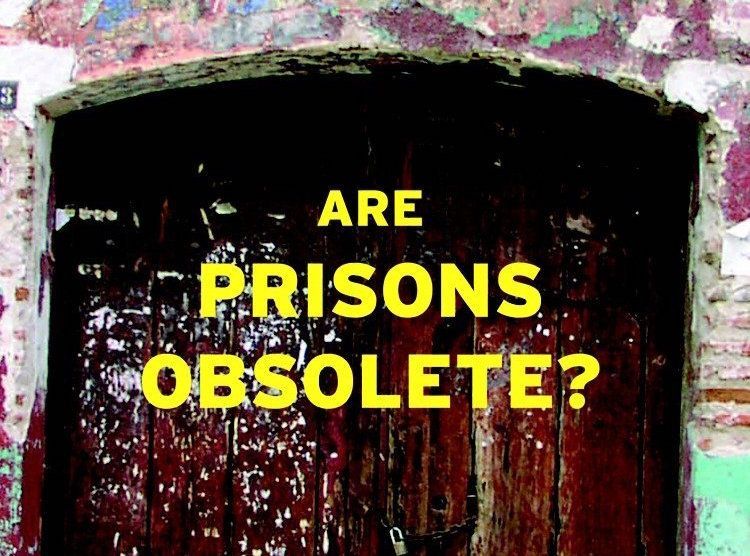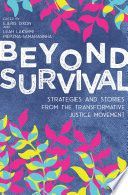November 2021 Staff Picks: Restorative and Transformative Justice

Staff pick books for November include a range of resources related to restorative and transformative justice, a holistic approach to harm that focuses on accountability and seeks to address the conditions that lead to violence, including the needs of the victim, offender, and community, rather than applying punitive measures including incarceration that enact further violence and harm on individuals and communities. Particular titles provide support for educators implementing restorative justice programs in their schools. Other resources give background on criminalization, exploring group-differentiated vulnerability to carceral regimes, and arguing for solutions to harm that address root causes. Schools are often complicit in criminalization, thus educators who wish to dismantle the carceral system must actively work against the school-to-prison pipeline and administrative tendencies to pathologize marginalized students. These books can serve as supportive resources for all individuals interested in adequately addressing harm and working toward a world without prisons. There are interventions to be made in all settings to transform the way we react to conflict and harm. I hope this collection inspires others to combat criminalization in their communities and support those affected by the carceral system, to try what Mariame Kaba proposes "a million experiments."
S. Lambel provides examples of such experiments:
"Abolitionist alternatives...include restorative/ transformative justice initiatives, community-based restitution projects, social and economic support networks, affordable housing, community education projects, youth-led recreational programs, free accessible healthcare services, empowerment-based mental health, addiction and harm reduction programs, quality employment opportunities, anti-poverty measures, and support for self-determination struggles"
in Captive Genders: Trans Embodiment and the Prison Industrial Complex, included in this collection (p. 254).
Book List:
These book are on display in the 2nd floor reading room of the library, available for checkout. Some are only available as ebooks, and can be accessed directly from the links below.
 Practicing Disability Studies in Education: Acting Toward Social Change
Practicing Disability Studies in Education: Acting Toward Social Change
This great collection of writing including how disability is criminalized in schools and invites a radical rethinking of educational response to disability.
Disrupting the School-to-Prison Pipeline
Collection of essays, including writing by previously incarcerated individuals, on experiences with and ways to combat the school-to-prison pipeline.
Color of Violence: The Incite! Anthology
Explains the failures of the criminal justice system to end violence against women of color, and explores antiviolence projects and movements by women of color from around the world.
 Right to be Hostile: Schools, Prisons, and the Making of Public Enemies
Right to be Hostile: Schools, Prisons, and the Making of Public Enemies
This book explores the funneling of youth of color into the prison system as early as preschool, and how educational practices normalize such racialized incarceration.
Are Prisons Obsolete?
A classic in the prison abolition movement, Angela Davis gives a history of the prison system and a convincing argument for its termination in this short, easy to read and engaging book.
 Captive Genders: Trans Embodiment and the Prison Industrial Complex
Captive Genders: Trans Embodiment and the Prison Industrial Complex
Examines state violence against queer and trans people outside and inside prison walls, including a range of voices, many of whom have been incarcerated.
 The Restorative Practices Handbook for Teachers, Disciplinarians and Administrators
The Restorative Practices Handbook for Teachers, Disciplinarians and Administrators
Practical guide for implementing restorative processes in schools, including examples.
 Girl Time: Literacy, Justice, and the School-to-Prison Pipeline
Girl Time: Literacy, Justice, and the School-to-Prison Pipeline
Author explains her work with incarcerated girls through the "Girl Time" theater program, examining the impacts of youth incarceration.
 Beyond Survival: Strategies and Stories from the Transformative Justice Movement
Beyond Survival: Strategies and Stories from the Transformative Justice Movement
Variety of authors offer practical support for doing transformative justice, including providing alternatives to calling the police and guides for supporting someone going through a mental health crisis.
 Just Schools: A Whole School Approach to Restorative Justice
Just Schools: A Whole School Approach to Restorative Justice
Handbook for using restorative justice in schools, including guides for healing circles and skill building practices for facilitators.
Toward What Justice?: Describing Diverse Dreams of Justice in Education
Discusses a range of ideas about what justice does and could mean in education, incorporating scholars from a wide range of disciplines including indigenous studies, critical disability studies and queer studies.
 The Little Book of Restorative Justice in Education: Fostering Responsibility, Healing, and Hope in Schools
The Little Book of Restorative Justice in Education: Fostering Responsibility, Healing, and Hope in Schools
Includes activities and examples, and provides guidance for creating a just learning environment and building relationships, which are needed to adequately address conflict.
 DisCrit: Disability Studies and Critical Race Theory in Education
DisCrit: Disability Studies and Critical Race Theory in Education
Examines disability and difference, and intersections of race, class, gender and disability, exploring how inequity and exclusion manifest in schools and society.
 The Politics of Restorative Justice: A Critical Introduction
The Politics of Restorative Justice: A Critical Introduction
Explores histories of restorative justice and philosophical considerations, cautioning against its potential to be used as a punitive measure if appropriated.

The Little Book of Restorative Justice
A seminal book on the restorative justice movement, this handbook serves as a great foundation with useful principles and practices.



